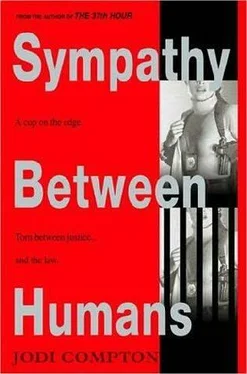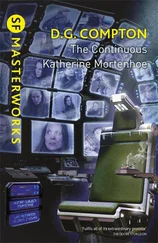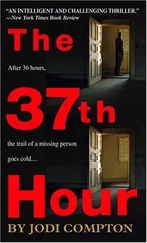Five years later, Hugh Hennessy had published his long-awaited third novel. A Rainbow at Night focused on the union of two passionate young people who had chosen, out of step with their modern world, to marry early and rear children immediately. It chronicled the trials and joys of such a young union, and then the narrator’s struggle to make sense of the unexpected loss of his soulmate. It was well reviewed, and Hugh Hennessy was briefly in the public eye again. Then, once more, he faded from view.
Even the best of the profiles left questions unanswered. Had one of America ’s famous literary friendships been a longtime, unacknowledged love triangle that had poisoned its principals? Had Hugh Hennessy pushed his wife into having too many children, and ignored the warning signs of postpartum depression? These were issues that Healy and his peers couldn’t explicitly raise. There was no one to address them. Hennessy was uncooperative, Campion in parts unknown, Elisabeth dead.
***
On my wayhome from the university, it had occurred to me that I was reaching the end of the second day since my eardrum lancing; I was due at Cicero ’s for the follow-up exam he’d requested. I was tempted to skip it. My ear hadn’t hurt at all today, and the last thing I needed was to prolong my involvement with Cicero Ruiz, who I’d last seen while attempting to slip out of his bedroom unnoticed.
But I also recalled how he’d helped me when I’d needed it rather desperately. The least I could do was respect his professional judgment. He probably wouldn’t want to mention the events of my last visit any more than I would. Neither of us would mention it; everything would be fine.
In my last visit to Cicero ’s, I’d been in too much pain with my ear to think about the slow, creaky elevator ride up to his apartment. This evening I noticed it anew: the shrieking cable beyond the ceiling, the flickering light, the slow progress from lighted number to lighted number. I told myself to quit being paranoid. It was slow; that didn’t mean-
Above the roof, I heard a crunching noise, and the car came to an abrupt halt. The number 14 had been lit for a moment, perhaps more than a minute. I wanted to believe that someone on floor 14 had called the elevator, but I knew that wasn’t true. By my estimation, I was in between floors 14 and 15, and I wasn’t going to be getting any farther for a while.
“Perfect,” I said.
***
When I finallyarrived on the 26th floor, I saw Cicero immediately, sitting in the open door of his apartment, talking with a young black woman who stood outside the closed door of the apartment across the hall. She was about 21 or 22, striking in a two-piece outfit of bronze and gold, a sleeveless shirt and wide-legged pants over low-heeled boots. She held her keys in one hand and a take-out bag in the other, seemingly home late from an office job. As I approached, she looked at me, expectant.
Cicero made the introduction. “Sarah, this is Soleil, my neighbor,” he said. “Soleil, this is Sarah.”
“Hey,” I said.
“Good to meet you,” Soleil said. “I better be going,” she told Cicero, and unlocked her door.
Cicero put his hands on the wheels of his chair and backed up through his doorway, but he was slow enough doing it that I heard an odd sound behind me as Soleil went into her apartment. It sounded like claws ticking speedily across linoleum. I turned to see that in fact a big, fireplug-bodied black-and-tan dog had rushed to greet Soleil, and she’d gone down to sit on her heels, where he licked her face in the kind of reunion ecstasy that only dogs can feel. “That’s my bwoy,” she said, giving the last word a Caribbean twist.
Cicero closed his door, shutting out the spectacle.
“That was a dog,” I said.
“Yes, it was.”
“Not just any dog,” I said. “That was a Rottweiler.”
“Indeed it was. Fidelio, by name.” Cicero rolled closer to the center of his living room.
“Dogs are allowed in this building?” I asked.
“No,” Cicero said. “You disapprove?”
“No, no,” I said quickly. “I like dogs. I’m just surprised she’s getting away with it. It’s hard to hide a dog that size. He must need to be walked and everything.”
Cicero nodded. “And eventually she’ll get caught. But not because of me or anyone on this floor. Fidelio’s well behaved, and this is a live-and-let-live place,” Cicero said. “The only thing I had to tell her is, he can’t come in here.”
“Why not?”
“Sanitary reasons. No dogs in the exam room.”
“Of course,” I said, and then we fell into a moment of silence. I took out my billfold. “So,” I said, “how much for tonight’s visit?”
“Forty,” Cicero said. “I’ll be right with you.”
He rolled over to his kitchen sink. I took out two twenties and laid them on the shelf, stood awkwardly in Cicero ’s living room, wishing he kept more personal items out on display so I could pretend to study them. Anything to sandbag against the memory of intimacy that threatened like a silent wall of water. Cicero was doing an excellent job of not showing any sign that he remembered that we’d slept together two nights ago. I was having a little more difficulty with that. Maybe what Shiloh didn’t know wouldn’t hurt him, but that was a facile, easy excuse and it gave me no comfort.
I drew a deep, steadying breath. Cicero, washing up at his kitchen sink, misinterpreted it.
“Don’t be nervous,” he said, over the sound of running water. “I expect this to be painless.”
“That’s what doctors always say,” I told him.
“No, we say, ‘This won’t hurt a bit,’ ” he corrected me.
I laughed. “Sorry I’m late, by the way. I got stuck in your elevator.”
I’d intended to entertain him with the story of how the emergency phone hadn’t worked and I’d been rescued by a pair of teenage residents with a pry bar, who’d forced open a gap about the size of a doghouse door, and how I’d lowered myself awkwardly down to the fourteenth-floor hallway. But Cicero turned so sharply, the words died on my lips.
“You did?” he said.
“What’s wrong?” I said. “It was just an inconvenience.”
Cicero shook his head and rolled back into the living room. “That elevator’s a goddamned menace,” he said vehemently. “You’re the third person I’ve heard about that’s been trapped.” He rummaged in his supply chest, shook down a thermometer. “Okay, put this under your tongue.”
“I don’t have a temperature.”
“Sarah, quit doing my job for me.” There was a bit of iron in his voice now. Meekly, I complied.
Cicero took his time inspecting my ear. Then he took the thermometer from my mouth. He read it silently. When he spoke it was to ask me questions about symptoms I’d had in the past two days: dizziness, pain, difficulty or anomalies in my hearing? I told him no to all those inquiries, and that yes, I’d been taking my antibiotics.
He put the thermometer and the otoscope away.
“Well, your temperature is 98.6, your ear looks very nice, and you sound like you’re doing quite well,” he said. “You heal fast.” He took out his legal pad and wrote again.
“What are you writing?” I asked.
“Just notes,” he said. “Even though you’re reportedly ‘never sick,’ you may need to come see me again someday, given your aversion to traditional doctors.”
“I hope not to,” I said. “No offense.”
“Still, do you mind if I ask a few questions, like a medical history, in case I see you again?”
Something about the idea made me nervous; Cicero saw it. “They’re just for my private use,” he said. “No one else will see them.”
Читать дальше












